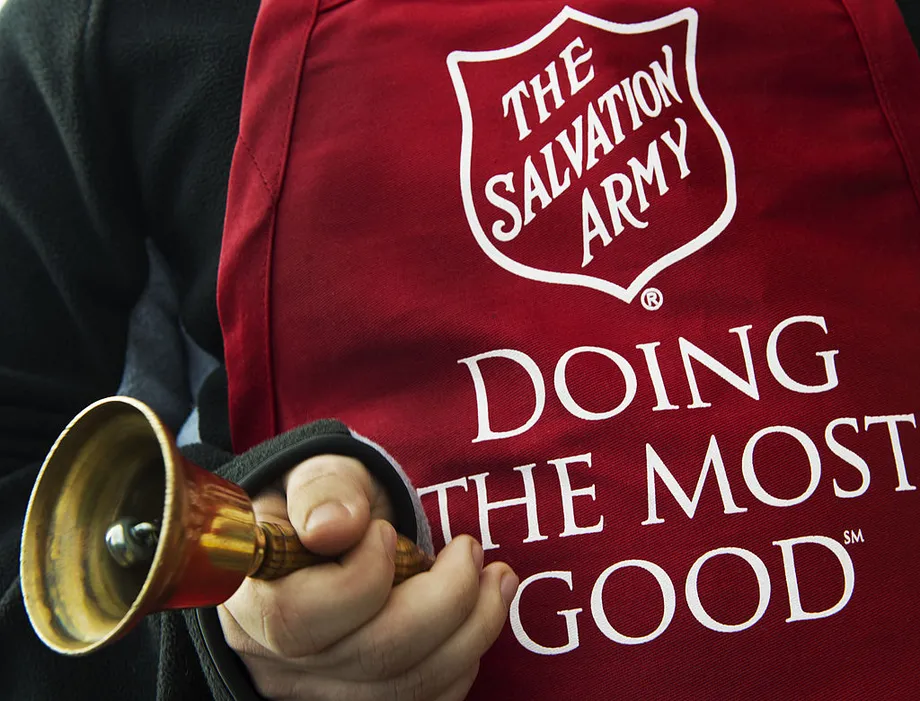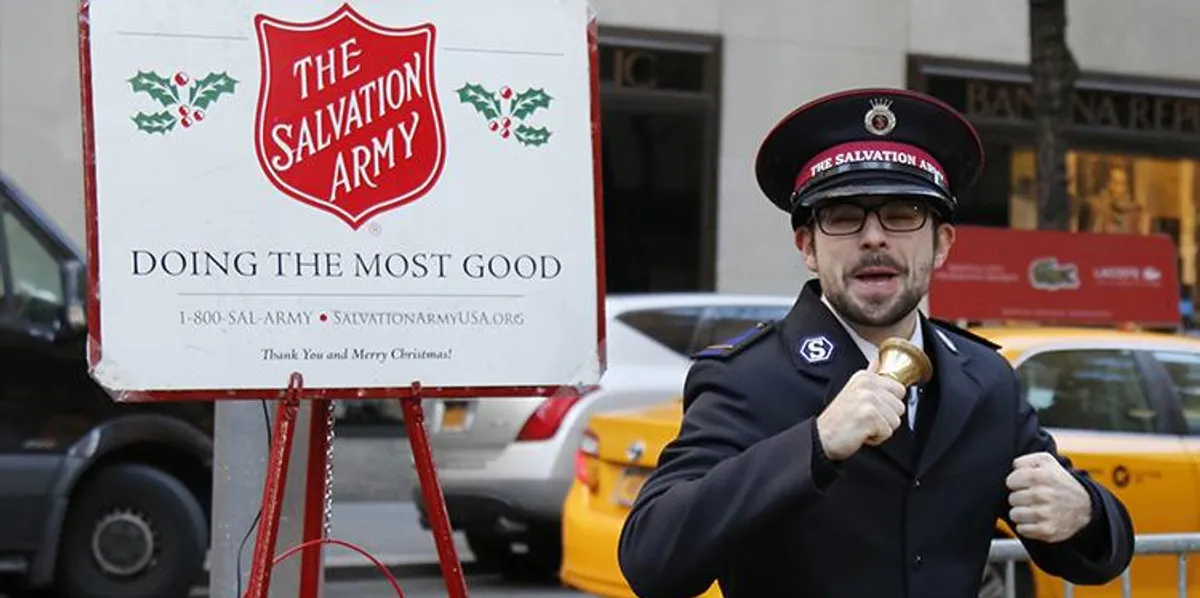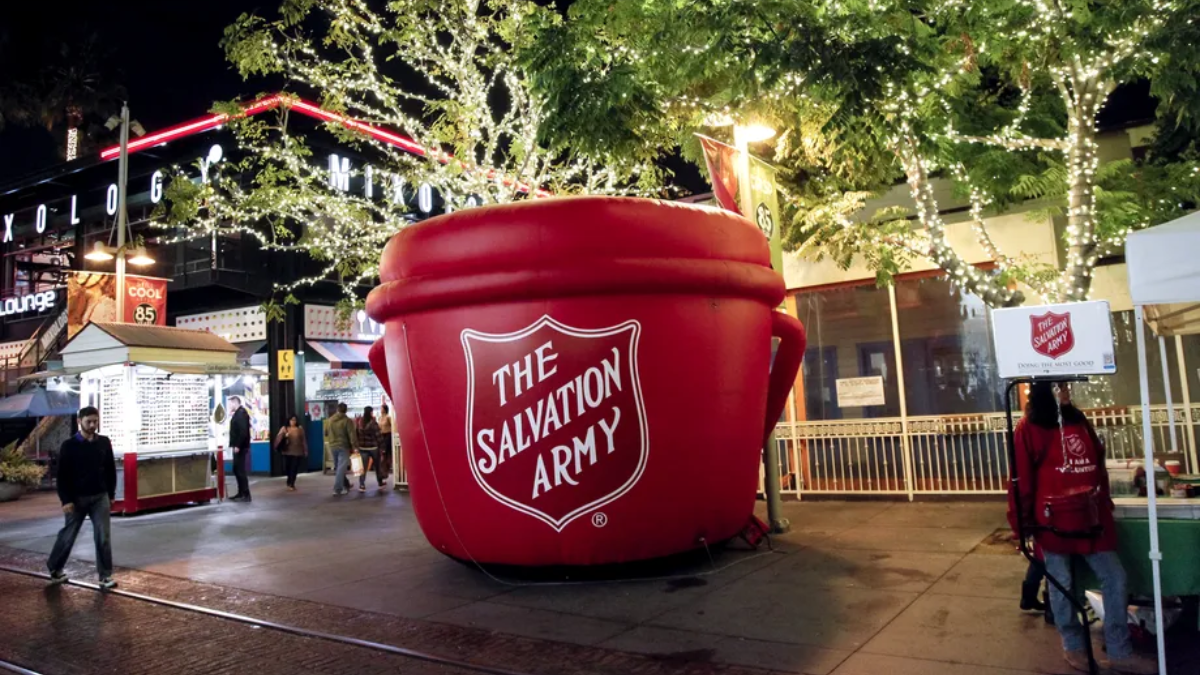Is The Salvation Army anti-gay? Welcome to the exploration of a question that has sparked much debate and speculation: Is The Salvation Army anti-gay?
Founded in 1865 as the “East London Christian Mission,” this Protestant Christian church has evolved into an international charitable organization with a mission to bring salvation to the poor and destitute, addressing both their physical and spiritual needs.
With a worldwide membership exceeding 1.7 million, The Salvation Army operates in 133 countries, providing crucial services such as running charity shops, homeless shelters, and disaster relief efforts.
Rooted in the Wesleyan Holiness movement, the organization follows a distinctive military structure and holds Christian principles as its highest priority.
However, amidst its extensive charitable work, The Salvation Army has faced controversy, particularly regarding its stance on the LGBTQ+ community.
As we delve into the intricacies of its history, structure, and activities, we aim to uncover the truth behind the long-standing rumors and conspiracy theories circulating on the internet.
Join us in exploring the complexities surrounding The Salvation Army’s relationship with the LGBTQ+ community and discerning whether these claims hold merit.
Is Judas Priest Gay? A Deeper Look at the Band’s Sexual Orientation!
Is The Salvation Army Anti Gay?

The question of whether The Salvation Army is anti-gay has been a subject of ongoing debate and speculation, fueled by a series of events and statements that have shaped public perception.
The Salvation Army, a Protestant Christian church and international charitable organization, with its origins dating back to 1865 in London, has a complex history regarding its stance on the LGBTQ+ community.
One of the key factors contributing to the controversy is Title VII of the U.S. Civil Rights Act of 1964, which allows religious organizations such as The Salvation Army to inquire into people’s religious beliefs in their hiring practices.
The organization, which employs over 55,000 individuals, claims not to discriminate against hiring gays and lesbians for the majority of its jobs. However, historical instances reveal a more nuanced picture.
In 1986, The Salvation Army actively campaigned against the Homosexual Law Reform Act in New Zealand, which sought to decriminalize homosexuality.
While the organization expressed regret in 2006 for the ill feelings generated by its opposition, the incident marked a source of tension with the LGBTQ+ community.
The Salvation Army’s stance on providing domestic benefits to same-sex partners of employees also stirred controversy. In 1997, the organization declined a $3.5 million contract with the city of San Francisco, which required extending such benefits.
In 2001, The Salvation Army pressed the Bush Administration to exempt it and other religious groups from anti-discrimination legislation, a request that was denied, drawing criticism from LGBTQ+ advocacy groups.
The organization’s opposition to the repeal of Section 28 of the Local Government Act in the United Kingdom in 2000 further fueled concerns.
Section 28 prevented local authorities from intentionally promoting homosexuality, and The Salvation Army’s public stance against its repeal raised eyebrows.
A notable turning point occurred in 2001 when The Salvation Army Western Territory approved offering domestic partnership benefits to employees in same-sex relationships.
However, the decision faced strong opposition from evangelical Christian interest groups, leading to its rescindment by the organization nationwide in November 2001.

The Salvation Army’s position statement on “same-sex” “sexual orientations” between 2010 and 2013 declared that scripture forbids sexual intimacy between members of the same sex, advocating celibacy for Christians with primarily or exclusively same-sex orientation.
The statement was later reported to be deleted in June 2012, with the organization stating that its position on homosexuality was under review.
Instances such as a bell-ringer carrying a sign reading “If you support gay rights: please do not donate” in Canada in 2012 and referring LGBT individuals to conversion therapy groups in 2013 further fueled concerns.
The Salvation Army faced backlash for withdrawing support for an Australian safe schools program focusing on LGBT students in 2016.
In November 2019, singer Ellie Goulding expressed concern about supporting The Salvation Army due to perceived anti-LGBTQ+ sentiments, highlighting ongoing tensions between the organization and the LGBTQ+ community.
In conclusion, the question of whether The Salvation Army is anti-gay is a complex one, marked by a history of conflicting actions and statements.
While the organization has claimed not to discriminate in its hiring practices, various incidents and positions have sparked controversy and strained its relationship with the LGBTQ+ community.
The ongoing dialogue surrounding The Salvation Army’s stance on LGBTQ+ issues reflects the importance of transparency and continued engagement to address concerns and foster understanding.
Is BTS a Gay Band? Homophobia And Cyber Bullying At Peak!
The Complex Equation: LGBTQ Support vs. Anti-Gay Lobbying in Salvation Army!

Critics argue that while some Salvation Army shelters do provide assistance to LGBTQ individuals, the organization’s lobbying against LGBTQ rights remains a significant concern.
In a recent op-ed, it was acknowledged that some Salvation Army leaders hold traditional biblical views on marriage, which align with many religious leaders worldwide.
Despite offering life-saving services such as food and shelter to LGBTQ individuals facing homelessness, the organization is criticized for potentially endorsing leaders with homophobic views that contribute to broader discrimination against the LGBTQ community.
According to Hudson, the Salvation Army appears to speak from both sides of its mouth. While delivering essential services to the LGBTQ community, it actively opposes marriage and other rights, with particular challenges surrounding transgender issues.
This dual stance, delivering aid while maintaining anti-LGBTQ lobbying efforts, creates a complex situation.
The vulnerability of LGBTQ youth to homelessness is a pressing issue. A 2017 report from Chapin Hall at the University of Chicago highlighted that LGBTQ young adults are 120 percent more likely to experience homelessness compared to their straight, cisgender counterparts.
The root cause often lies in homophobia within their families or communities, contributing to their disproportionate homelessness rates.
Critics argue that the Salvation Army’s conflicting approach perpetuates discrimination, especially among LGBTQ youth and the transgender population.
Given the already high suicide rates among transgender youth, the organization’s doctrines are seen as exacerbating these challenges.
The debate centers on the organization’s simultaneous provision of crucial services and its perceived contribution to systemic discrimination against the LGBTQ community, particularly among the most vulnerable individuals.

